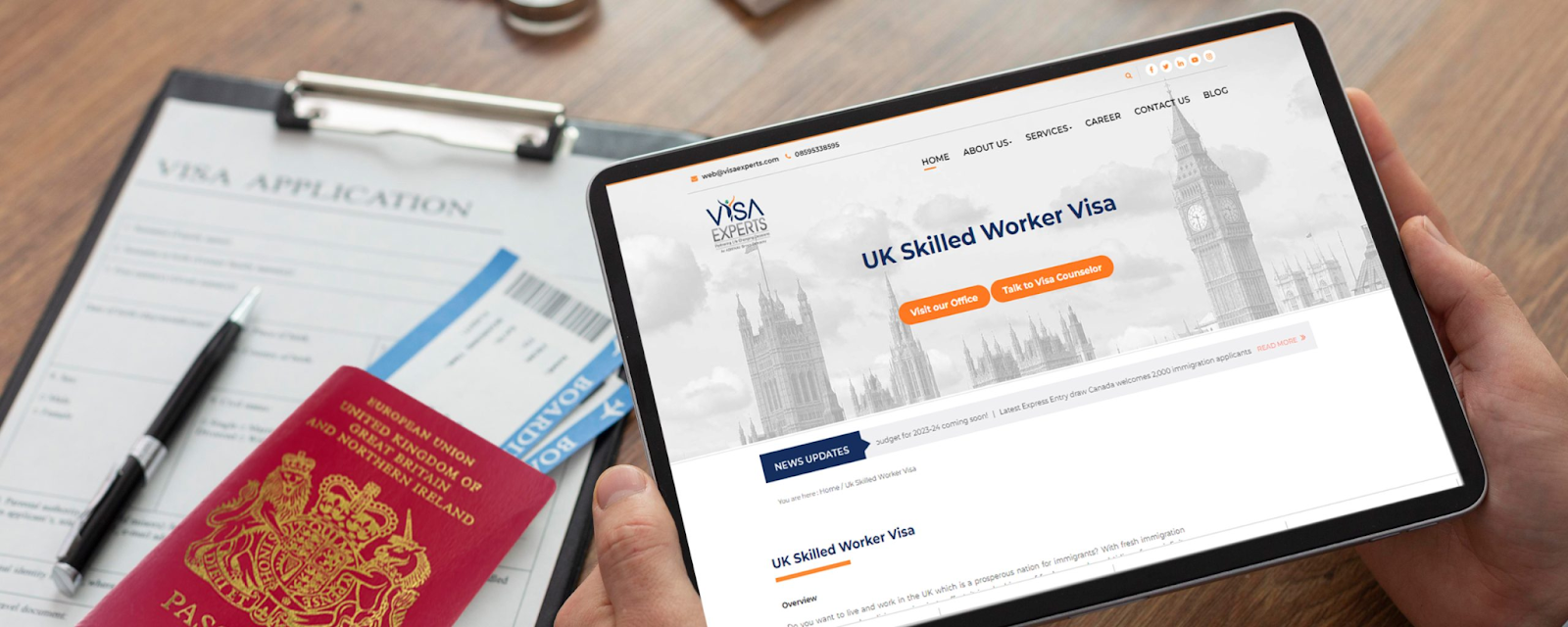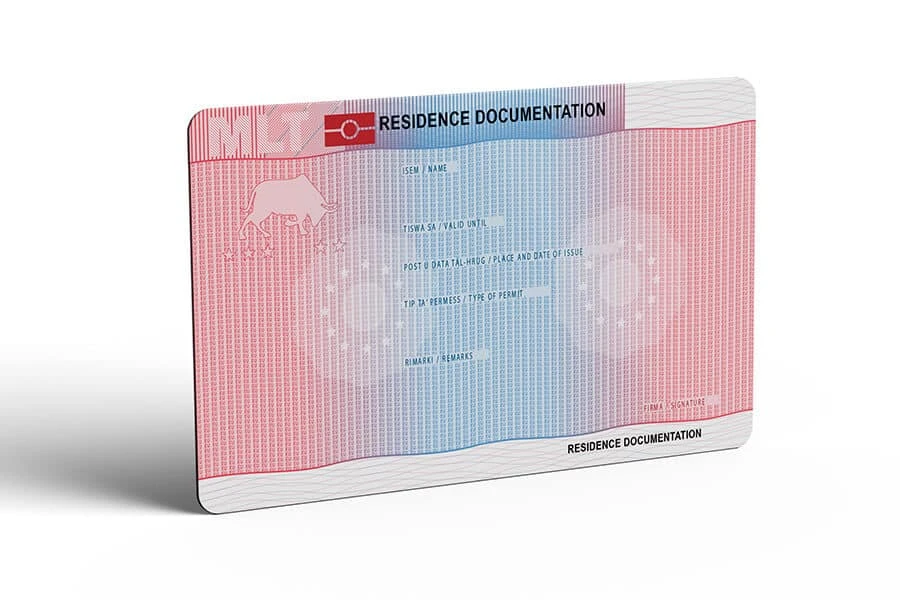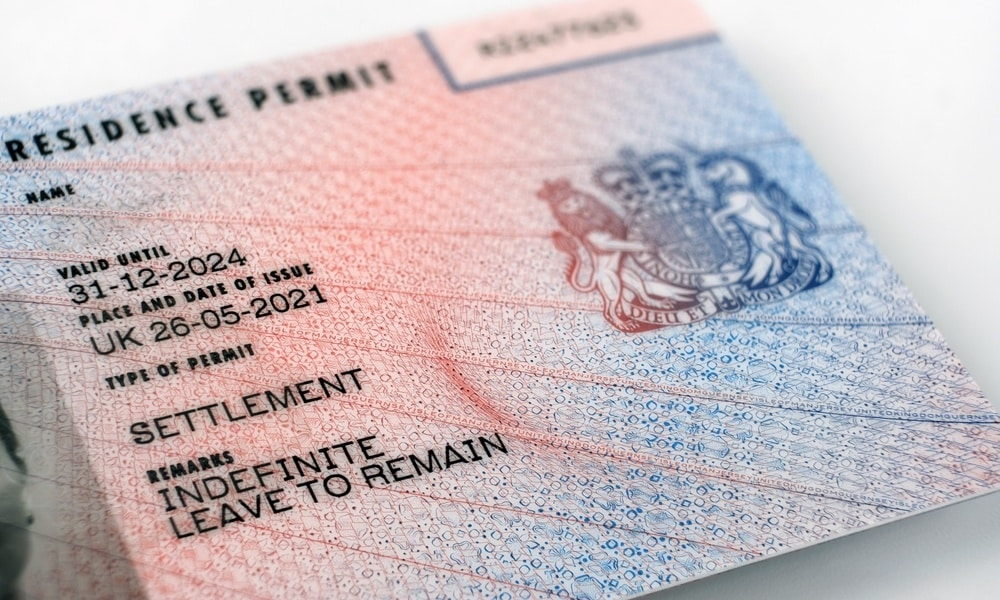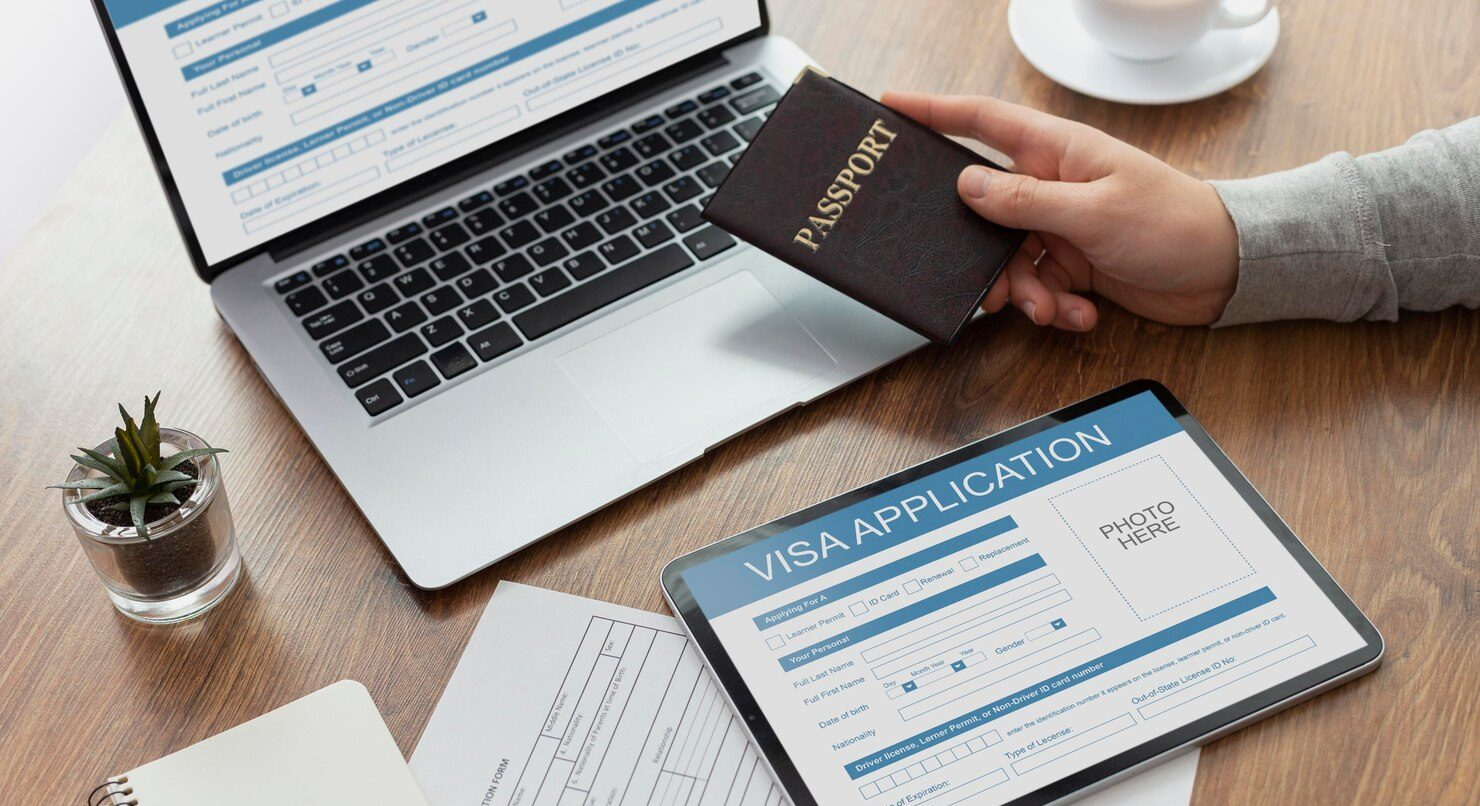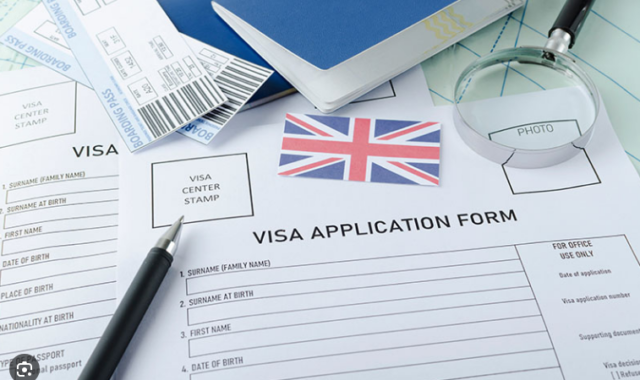A UK Visa Card, more commonly referred to as a UK Residence Permit, is an official document that grants a foreign national the legal right to reside in the United Kingdom (UK) for a specified period. It is typically issued as part of the UK’s immigration system, allowing people from outside the European Union (EU) to live, work, or study in the UK. The UK Visa Card, or Residence Permit, serves as proof of your legal immigration status and allows you to travel in and out of the UK, depending on your visa conditions.
In this article, we will explain what a UK Visa Card (Residence Permit) is, the different types available, how to apply for one, and what you need to know before applying. We will also address common questions related to the UK Residence Permit and provide helpful insights into the application process.
What is a UK Visa Card (Residence Permit)?
The UK Visa Card is a biometric card issued to individuals who have been granted permission to live in the UK for a set period. The card includes biometric data, such as fingerprints and a photograph, and is used to verify your identity while living in the UK. It is a key part of the UK’s immigration and border control systems.
Ready to apply for your UK Visa?
Click the button below to start your simple and secure visa application process.
🇬🇧 APPLY UK ETA VISA HEREThe Residence Permit card itself doesn’t grant you the right to enter the UK; it is issued after you have been approved for a visa, such as a work visa, study visa, or family visa. Once you have received your residence permit, you can use it as evidence of your legal status while living in the UK.
In the UK, the Residence Permit typically serves as the official immigration document for non-EU nationals who are granted long-term visas. It includes important details such as:
- Your name, date of birth, and nationality
- Your photograph and biometric data (fingerprints)
- The type of visa you hold and the length of stay
- Any restrictions or conditions related to your visa (such as work limitations)
Types of UK Residence Permits
The UK offers several types of residence permits based on the reason for immigration, including visas for work, study, family reunification, and long-term residency. The type of residence permit you will need depends on the specific visa you are granted.
1. Work Visa Residence Permit
If you are coming to the UK to work, you will need a work visa, and once your visa is approved, you will be issued a work visa residence permit. There are several types of work visas, including:
- Skilled Worker Visa: This is the most common work visa for individuals with a job offer from a licensed UK employer. It is valid for up to 5 years and allows workers in skilled roles to live and work in the UK.
- Global Talent Visa: For individuals with extraordinary talent in science, medicine, digital technology, or the arts.
- Intra-Company Transfer Visa: For employees of multinational companies who are transferred to a UK branch or subsidiary.
Once approved for a work visa, you will be issued a residence permit that confirms your right to live and work in the UK for the duration of your employment contract.
2. Study Visa Residence Permit
If you are coming to the UK to study at an accredited educational institution, you will need a Student Visa. Once granted a student visa, you will receive a residence permit. Student visa residence permits typically include the duration of your course and any other relevant information such as work restrictions during your studies.
3. Family Visa Residence Permit
A Family Visa allows non-UK nationals to join their spouse, partner, child, or other close family member in the UK. Once approved for a family visa, you will be issued a residence permit, which will allow you to live in the UK with your family for the duration of your visa.
4. Indefinite Leave to Remain (ILR) or Permanent Residency
Once you have lived in the UK for a specified period on a valid visa (usually 5 years), you may be eligible to apply for Indefinite Leave to Remain (ILR), which is essentially permanent residency. If granted, you will receive a residence permit that confirms your permanent residency status in the UK.
Benefits of a UK Visa Card (Residence Permit)
A UK Visa Card (Residence Permit) comes with several benefits for individuals who are allowed to reside in the UK:
- Legal Right to Reside: The permit proves your legal right to live and work in the UK for the duration of your visa.
- Travel Flexibility: Some types of residence permits allow you to travel in and out of the UK during the validity of your visa.
- Access to Public Services: With a residence permit, you may be eligible to access certain public services, including healthcare (through the NHS), provided you have paid the Immigration Health Surcharge.
- Work Rights: Depending on your visa, the residence permit may grant you the right to work in the UK, whether full-time, part-time, or on specific terms.
- Pathway to Settlement: A residence permit is often the first step toward long-term settlement in the UK. After a specified period, you may be eligible for permanent residency or British citizenship.
How to Apply for a UK Visa Card (Residence Permit)
The process of applying for a UK residence permit typically involves two key steps: obtaining the relevant visa and then applying for the biometric residence permit (BRP).
Step 1: Apply for a Visa
Before you can apply for a residence permit, you must first obtain a visa. The UK offers a range of visas based on your reason for moving to the country. The visa types include work visas, study visas, family visas, and visitor visas, among others.
- Visit the official UK government website (www.gov.uk) to determine which visa category you fall under.
- Complete the online visa application form, providing all necessary personal details and supporting documents such as proof of identity, proof of financial support, and a valid passport.
- Pay the visa application fee and, if applicable, the Immigration Health Surcharge (IHS), which helps fund the UK’s National Health Service (NHS).
- Wait for your visa decision. If your visa is approved, you will be given instructions on how to collect your residence permit.
Step 2: Apply for a Biometric Residence Permit (BRP)
Once your visa is approved, you will need to apply for a Biometric Residence Permit (BRP), which serves as your UK residence permit. The BRP is issued by the UK Home Office and is used to verify your identity and immigration status.
- After your visa is approved, you will be invited to attend an appointment at a UK Visa and Citizenship Application Services (UKVCAS) centre to have your biometric data (fingerprints and photograph) taken.
- Once your biometric information is collected, your BRP will be processed, and you will receive the permit by mail within a few weeks.
- The BRP will contain your personal information, visa details, and biometric data.
Step 3: Collect Your UK Residence Permit
Once your application is complete and your BRP is processed, you will receive your UK Residence Permit. Depending on the type of visa you were granted, this permit will allow you to remain in the UK for a specific duration, after which you may be able to apply for an extension or permanent residency (Indefinite Leave to Remain).
Key Documents Required for Applying
When applying for a UK Visa Card (Residence Permit), you will need to provide several key documents as part of your application:
- A valid passport or travel document
- Proof of financial support (e.g., bank statements, sponsor letters)
- Proof of accommodation in the UK
- Tuberculosis test results (for applicants from certain countries)
- Biometric data (fingerprints and photographs)
- Any other documents relevant to your specific visa category (e.g., employment offer, educational offer)
Does This Card Have an Expiry Date?
Yes, a UK Visa Card (Residence Permit) does have an expiry date. The duration of the permit will vary depending on your visa type and circumstances. For example, work visas may be valid for up to 5 years, while study visas may be valid for the duration of your course.
Also, keep in mind that once your visa expires, you must either leave the UK or apply for an extension or permanent residency. It is important to carefully track the expiry date of your residence permit and take necessary steps to maintain your legal status in the UK.
Is It Possible to Lose My UK Visa Card (Residence Permit)?
Yes, it is possible to lose your UK Visa Card (Residence Permit). If this happens, you must report it immediately and apply for a replacement. Failure to do so may result in penalties or even deportation.
To avoid losing your card, always keep it in a safe place and do not lend it to others. It is also important to update the Home Office if there are any changes to your personal details or circumstances. This will ensure that your residence permit remains accurate and up-to-date.
FAQs
How long does it take to get a UK Residence Permit?
The processing time for a UK Residence Permit can vary depending on the visa category and individual circumstances. Typically, it can take anywhere from 8 to 12 weeks to receive a decision on your visa application. After receiving approval, your BRP will arrive within a few weeks.
Can I work with a UK Residence Permit?
Yes, a UK Residence Permit allows you to work in the UK if your visa grants work rights. However, the type of work and conditions will depend on the specific visa category. Some visas, such as the Skilled Worker Visa, allow full-time employment, while other visas may impose work restrictions.
Can I apply for British citizenship with a UK Residence Permit?
After holding a UK Residence Permit for a certain number of years (usually 5 years), you may be eligible to apply for Indefinite Leave to Remain (ILR), which is a pathway to permanent residency. Once you have held ILR status for at least 12 months, you can apply for British citizenship, subject to meeting other criteria such as residency requirements and the Life in the UK Test.
What happens if my UK Residence Permit expires?
If your UK Residence Permit expires, you will need to apply for an extension or, if eligible, Indefinite Leave to Remain (ILR). If you do not apply before the expiration date, you may face legal consequences, including possible deportation. Be sure to keep track of your visa and permit expiration dates and apply for extensions in a timely manner.
Conclusion
In conclusion, a UK Visa Card is an essential document for non-EEA citizens who wish to live, work, or study in the UK. To obtain this permit, one must carefully follow the steps outlined in this guide and provide all necessary documents as part of their application.
It is important to track the expiry date of your permit and take necessary steps to maintain legal status in the UK. Additionally, it is crucial to keep your residence permit safe and update the Home Office of any changes in personal details or circumstances.
By obtaining a valid UK Residence Permit, individuals can enjoy various opportunities and benefits while living in one of the most diverse and culturally rich countries in the world. So, if you are planning to move to the UK, make sure to start the process of obtaining your UK Residence Permit as soon as possible!
Need a UK Visa Card (Residence Permit)? VisaETA UK is here to help!
Learn what a UK residence permit is, who qualifies, and how to apply. Get step-by-step guidance to ensure a smooth and successful application.
Start your process today at visaeta.uk!

